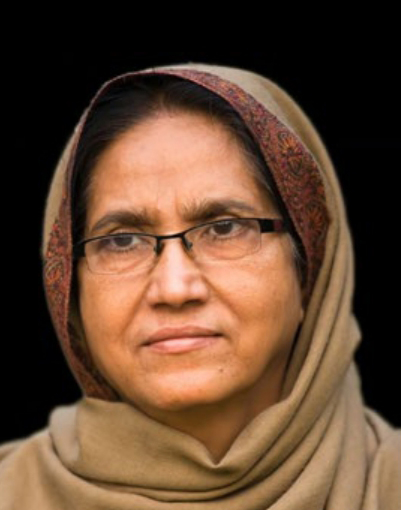FROM THE EDITORIAL DIRECTOR

Prof. Farida Khanam is an author, editor, translator, public speaker and former professor of Islamic Studies at Jamia Millia Islamia, New Delhi. Among her books are ‘A Simple Guide to Sufism’ and ‘A Study of World’s Major Religions’. She has translated into English many books authored by Maulana Wahiduddin Khan. Currently the chairperson of CPS International, she is a regular contributor of articles to various publications. Prof. Khanam has edited Maulana’s English translation of the Quran and has also translated his Urdu commentary of the Quran into English. She can be reached at [email protected]
COPING WITH DEATH
TWO books, published in the US, look from a scientific angle at the human side of death. One of them, On Children and Death, is written by Elizabeth Kubler-Ross, who drew material from her work with the families of dying children. The second book is coauthored by Colin Murray Parkes, a senior lecturer in psychiatry at the London Hospital Medical College, and Robert S. Weiss, a professor of sociology at the University of Massachusetts. Titled, Recovery from Bereavement, the book grew out of work done over ten years ago by the Harvard Bereavement Study. It looks at the way widows and widowers under 45 mourn their losses, and asks the question: Why do some get over their grief, while others do not? Both books, then, are the result of entirely scientific research, and aim to provide solace to the bereaved families through scientific approach.
Do these books succeed in their aim of offering consolation to those who have been robbed of their near and dear? Suzanne Fields, reviewing both works in the Washington Post, thinks not. These two books by these priests of science and reason, she writes, address the griefs and protocols of dealing with the dead and dying. Well-meaning books both, concerned with offering practical psychological advice as well as solace, they nevertheless—perhaps inevitably—are useful but not elevating, sensible but never soaring. Grounded in the earth of observation, they are offered to wounded spirits that crave not advice but inspiration.” (Guardian Weekly, January 1, 1984)
The reason for the failure of these books is that they attempt to tackle scientifically a problem that can only be dealt with by religion. It is only by realizing that death—far from being the end of life—is the beginning of real life that we can begin to cope with the distress and suffering that death leaves in its wake. We have been allotted a short while in this world so that we may be put to the test. We are required to realize here that, though we seem to have power, we are in fact helpless before the will of God; though we seem to have possessions and attachments, everything belongs to Him. It is only those who feel they own something who fear its loss. If one believes that everything and everybody is owned by God, then what is there to lose and lament?
Prof. Farida Khanam
[email protected]
The past and the present
may lie in ruins,
but the future is still safe.





